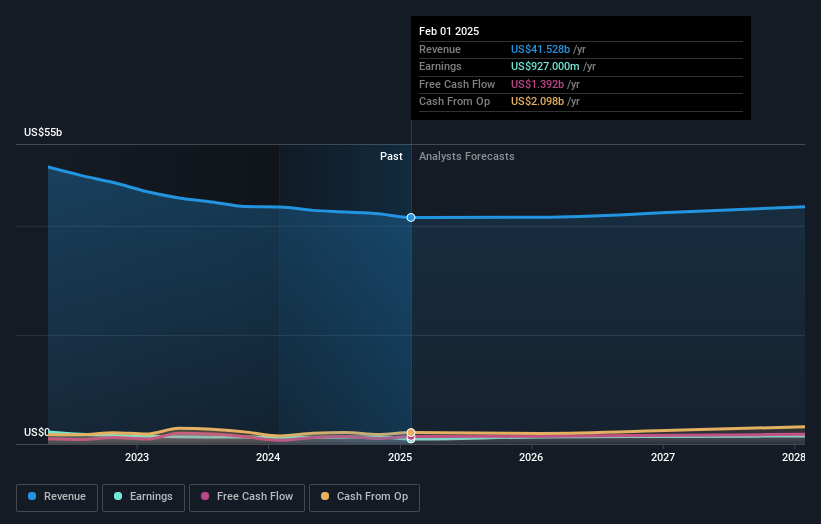At US$63.47, Is Best Buy Co., Inc. (NYSE:BBY) Worth Looking At Closely?
Let's talk about the popular Best Buy Co., Inc. (NYSE:BBY). The company's shares saw a decent share price growth of 13% on the NYSE over the last few months. Shareholders may appreciate the recent price jump, but the company still has a way to go before reaching its yearly highs again. With many analysts covering the large-cap stock, we may expect any price-sensitive announcements have already been factored into the stock’s share price. But what if there is still an opportunity to buy? Today we will analyse the most recent data on Best Buy’s outlook and valuation to see if the opportunity still exists.
Our free stock report includes 2 warning signs investors should be aware of before investing in Best Buy. Read for free now.What's The Opportunity In Best Buy?
According to our price multiple model, which makes a comparison between the company's price-to-earnings ratio and the industry average, the stock price seems to be justfied. In this instance, we’ve used the price-to-earnings (PE) ratio given that there is not enough information to reliably forecast the stock’s cash flows. We find that Best Buy’s ratio of 14.47x is trading slightly below its industry peers’ ratio of 14.67x, which means if you buy Best Buy today, you’d be paying a reasonable price for it. And if you believe Best Buy should be trading in this range, then there isn’t much room for the share price to grow beyond the levels of other industry peers over the long-term. Is there another opportunity to buy low in the future? Since Best Buy’s share price is quite volatile, we could potentially see it sink lower (or rise higher) in the future, giving us another chance to buy. This is based on its high beta, which is a good indicator for how much the stock moves relative to the rest of the market.
View our latest analysis for Best Buy
What does the future of Best Buy look like?

Investors looking for growth in their portfolio may want to consider the prospects of a company before buying its shares. Although value investors would argue that it’s the intrinsic value relative to the price that matter the most, a more compelling investment thesis would be high growth potential at a cheap price. Best Buy's earnings over the next few years are expected to increase by 59%, indicating a highly optimistic future ahead. This should lead to more robust cash flows, feeding into a higher share value.
What This Means For You
Are you a shareholder? BBY’s optimistic future growth appears to have been factored into the current share price, with shares trading around industry price multiples. However, there are also other important factors which we haven’t considered today, such as the track record of its management team. Have these factors changed since the last time you looked at BBY? Will you have enough conviction to buy should the price fluctuate below the industry PE ratio?
Are you a potential investor? If you’ve been keeping an eye on BBY, now may not be the most optimal time to buy, given it is trading around industry price multiples. However, the optimistic forecast is encouraging for BBY, which means it’s worth further examining other factors such as the strength of its balance sheet, in order to take advantage of the next price drop.
With this in mind, we wouldn't consider investing in a stock unless we had a thorough understanding of the risks. While conducting our analysis, we found that Best Buy has 2 warning signs and it would be unwise to ignore them.
If you are no longer interested in Best Buy, you can use our free platform to see our list of over 50 other stocks with a high growth potential.
Have feedback on this article? Concerned about the content? Get in touch with us directly. Alternatively, email editorial-team (at) simplywallst.com.
This article by Simply Wall St is general in nature. We provide commentary based on historical data and analyst forecasts only using an unbiased methodology and our articles are not intended to be financial advice. It does not constitute a recommendation to buy or sell any stock, and does not take account of your objectives, or your financial situation. We aim to bring you long-term focused analysis driven by fundamental data. Note that our analysis may not factor in the latest price-sensitive company announcements or qualitative material. Simply Wall St has no position in any stocks mentioned.
 Wall Street Journal
Wall Street Journal